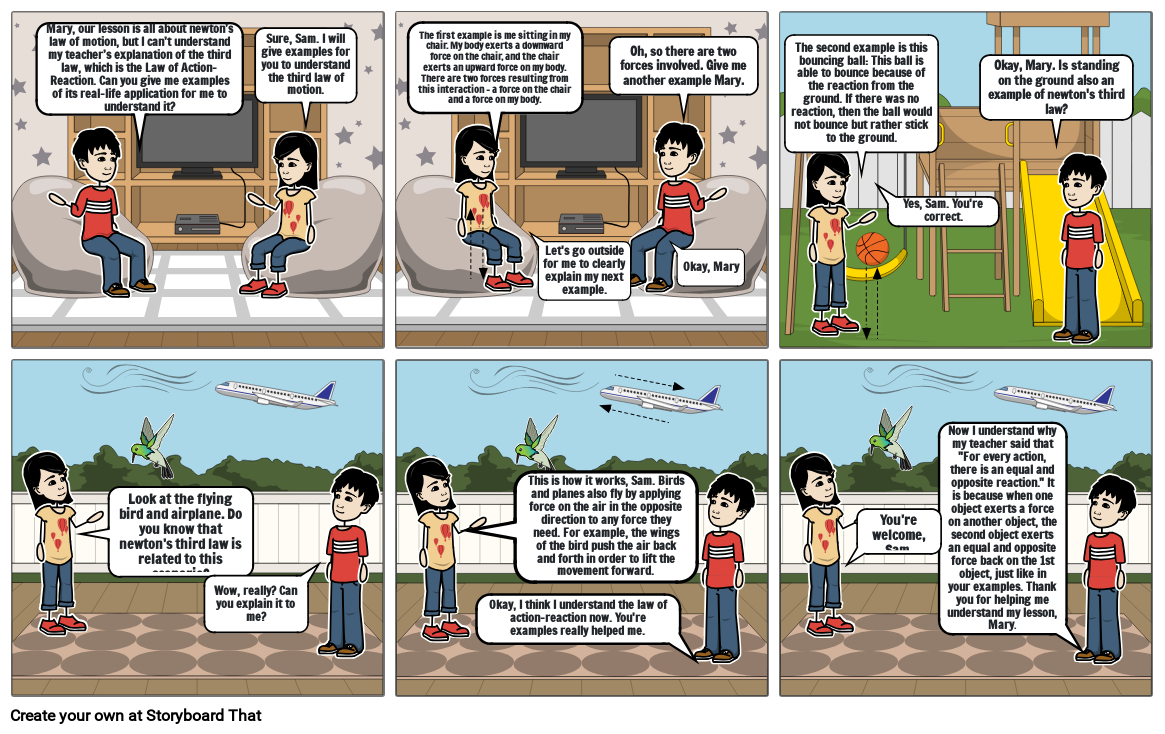Newton's third law of motion

Testo Storyboard
- Diapositiva: 1
- Mary, our lesson is all about newton’s law of motion, but I can’t understand my teacher’s explanation of the third law, which is the Law of Action-Reaction. Can you give me examples of its real-life application for me to understand it?
- Sure, Sam. I will give examples for you to understand the third law of motion.
- Diapositiva: 2
- The first example is me sitting in my chair. My body exerts a downward force on the chair, and the chair exerts an upward force on my body. There are two forces resulting from this interaction - a force on the chair and a force on my body.
- Oh, so there are two forces involved. Give me another example Mary.
- Let's go outside for me to clearly explain my next example.
- Okay, Mary
- Diapositiva: 3
- The second example is this bouncing ball: This ball is able to bounce because of the reaction from the ground. If there was no reaction, then the ball would not bounce but rather stick to the ground.
- Okay, Mary. Is standing on the ground also an example of newton's third law?
- Yes, Sam. You're correct.
- Diapositiva: 4
- Look at the flying bird and airplane. Do you know that newton's third law is related to this scenario?
- Wow, really? Can you explain it to me?
- Diapositiva: 5
- This is how it works, Sam. Birds and planes also fly by applying force on the air in the opposite direction to any force they need. For example, the wings of the bird push the air back and forth in order to lift the movement forward.
- Okay, I think I understand the law of action-reaction now. You're examples really helped me.
- Diapositiva: 6
- Now I understand why my teacher said that "For every action, there is an equal and opposite reaction." It is because when one object exerts a force on another object, the second object exerts an equal and opposite force back on the 1st object, just like in your examples. Thank you for helping me understand my lesson, Mary.
- You're welcome, Sam.
Oltre 30 milioni di storyboard creati

